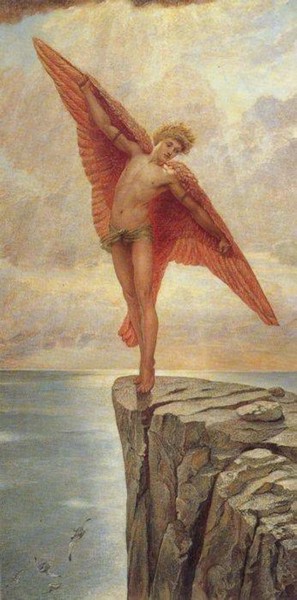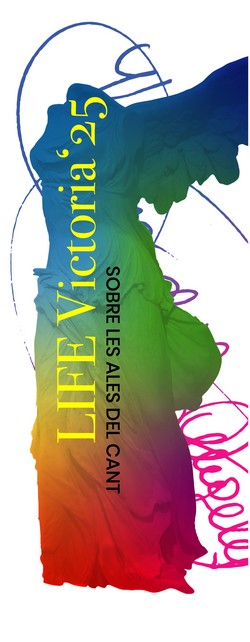
I don't remember if I ever asked you about your favourite Lied (or Lieder) by Schubert; if you want to share it (or them) today, please, go ahead! After some conversations here and there, given the devotion with which it's performed and the silence with which it's listened, after reading so many references that qualify it between masterpiece and perfection, I have little doubt that the Lied we will hear today is among the most beloved.
Nachtviolen is a great Lied; Attending to the form, however, it's a miniature, so, if you don't know it, may I ask you two things? 1) Please take the magnifying glass to listen to it and 2) listen to it a second time, in the unlikely event of you not loving it after the first time.
Nachtviolen is the German name for dame's violets; these flowers can have different colours and the ones I'm more used to see are between pale pink and mauve. That's why I always think of violets when I listen to this song; The humble common blue violet, one of my favourite flowers, better fits the dark velvet blue that the poem tells. I know that they are not violets but dame's violets, but I can't help it.
Anyway, I don't think the flower is so important because... does the poem really talk about flowers? It speaks mostly about something else that we could not exactly define, but we feel that it's important and moves us. There is something in the verses and the music that, for two minutes, makes us feel part of something transcendental.
The poem, I didn't say it yet, was written by Johann Mayrhofer. During the autumn of 1821, Schubert and Schober were at Saint Pölten preparing their opera Alfonso und Estrella. Mayrhofer sent them there the manuscript of a cycle of twenty poems called Heliopolis whose subject was artistic creation. In the prologue, the author encouraged artists (Schubert, Schober, their circle of friends, himself) to take risks in those terrible times and to fly into the sun (that is, towards art) like modern Icarus. In April 1822, once the opera was finished, Schubert put music to three of those poems, the fourth, fifth and twelfth, which became Nachtviolen, Heliopolis I and Heliopolis II. There is still one more Lied from those poems composed some time before, Lied eines Schiffers an die Dioskuren, because Mayrhofer included in his collection some existing pieces.
Schubert made some changes in Nachtviolen verses. Some of them were minor; for instance, he replaced vertiefen with versenken (I'm not sure about the nuance). However, other were really significant. This is the poem in the handwritten version:
Dunkle Augen, seelenvolle,
Selig ist es, sich vertiefen
In dem samtnen Blau.
Grüne Blätter streben freudig
Euch zu hellen, euch zu schmücken;
Doch ihr blicket ernst und schweigend
In die laue Frühlingsluft.
Ja, so fesselt ihr den Dichter
Mit erhabnen Wehmutsstrahlen
Trafet ihr sein treues Herz.
Und nun blüht in stummen Nächten
Fort die heilige Verbindung:
Unaussprechlich, unbegriffen,
Und die Welt erbleicht und sinkt.
Dame's violet, dame's violet!
Dark eyes, soulful,
It is blissful to immerse oneself
In this velvet blue.
Green leaves aspire happily
To brighten you, to adorn you,
But you gaze at her earnestly and silently
In the gentle spring breeze.
Yes, this way you captivate the poet
With the radiance of exalted wistfulness,
You touch his loyal heart.
And now in silent nights
Our holy union flourishes.
Inexpressible, incomprehensible
And the world turns pale and sinks.
The third stanza mentions the poet in third person; Schubert removes its first verse and then changes "sein" [his] to "mein" [my]. He also omits the last two verses of the fourth stanza, that is, the description of the holy union and the reference to the world. In this way, the mysterious union remains between flowers and us, without witnesses.
Mayrhofer reviewed Heliopolis' poems before publishing them in 1824 in a more extensive collection. Ours appears isolated and entitled Nachtviolenlied; The most important change is found in the last line, which is now "und die Welt reicht sie nicht" [and the world can't grasp it]. In a posthumous edition, from 1843, this poem appears as the first of a series of nine titled Nachtviolen.
Schubert's great worth is to convey the moment of fulfillment that the poem describes and to make us feel part of it; he stops the time in a moment of pure meditation and moves us with an extremely simple score. The voice keeps in a central register, this way it sounds very natural; the right hand approximately doubles the vocal line, and, of course, this "approximately" is deliberate. Pay attention to the magical moment, to the sense of unreality in some measures during the last two verses, when we hear the right hand higher than the voice. And then the breathtaking repetition. It's a song where nothing happens and where so many things happen.
Nachtviolen is one of those special Lieder worth to be reserved for a special week like this one, in which we commemorate the 190th anniversary of the death of Schubert, the apple of my eyes, and we thank him, again, from every single measure he wrote. We will listen to Nachtviolen performed by Felicity Lott and Graham Johnson.
Nachtviolen, Nachtviolen,
Dunkle Augen, seelenvolle,
Selig ist es, sich versenken
In dem samtnen Blau.
Grüne Blätter streben freudig,
Euch zu hellen, euch zu schmücken;
Doch ihr blicket ernst und schweigend
In die laue Frühlingsluft.
Mit erhabnen Wehmutsstrahlen
Trafet ihr mein treues Herz,
Und nun blüht in stummen Nächten,
Fort die heilige Verbindung.
Dame's violet, dame's violet!
Dark eyes, soulful,
It is blissful to immerse oneself
In this velvet blue.
Green leaves aspire happily
To brighten you, to adorn you,
But you gaze at her earnestly and silently
In the gentle spring breeze.
With the radiance of exalted wistfulness,
You touch my loyal heart,
And now in silent nights
Our holy union flourishes.
(translation by Emily Ezust)















Comments powered by CComment